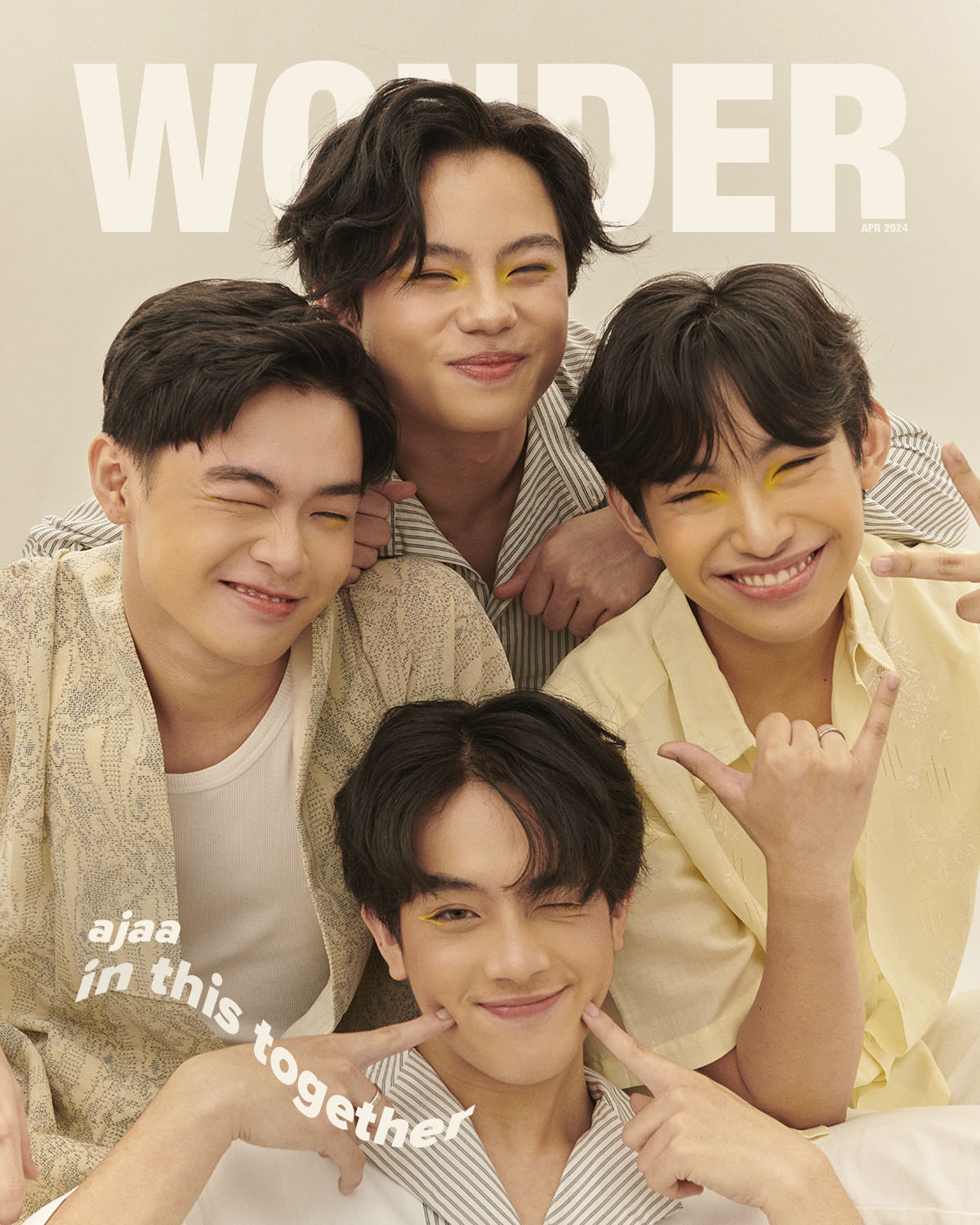In a country where monocultural relationships are the standard, there's a certain stigma regarding intercultural relationships. But what is it really like to be in one?
Birds of the same feather flock together, or so they say. But what happens when they don’t? Growing up in the Philippines as part of Gen-Z, monocultural relationships were always the standard. There's a certain stigma when it comes to interracial relationships, perhaps even a general sense of hesitation towards the unknown. It’s going to make people look and talk, more often than not.
There will always be a stereotype attached to these types of relationships, but the prejudices differ depending on the ethnicities involved. A Filipino in a relationship with an American would be accused of using their partner to obtain a green card, while a Filipino with a Korean would be labeled as a koreaboo, for example. Filipino-Chinese (“Fil-Chi” or Filipinos of Chinese descent) relationships in the Philippines are of another complexity in itself. Frowned upon mostly by the latter party, “The Great Wall” has even been coined to refer to the difficulty of getting together with a Fil-Chi partner because of cultural rules—spoken or unspoken—that bar Filipino-Chinese from having a relationship with other cultures, especially Filipinos. There are other stereotypes inflicted by Filipinos towards other cultures as well.
Because of the generalization that Filipinos are often blue-collar workers overseas, they are often typecast as “leeches” to their non-Filipino partners, greedy for wealth or a better life abroad. Perhaps this has something to do with colonial mentality as well—that we can only benefit from others and not offer value to people in the relationships we’re with.
The consensus is this: Interracial relationships have a bad rep for being a recipe for disaster. But what is it really like to be in one?
Wonder talks to Kring Lacson, a Filipino vlogger (@yourtitaabroad) who migrated to New Zealand. She is engaged to Franck Dupre, who was born and raised in Paris, France. The couple are currently based in New Zealand, and have been together for over six years.
Kring moved to New Zealand in early 2017 on the wishes of her parents to take up a Master’s Degree abroad. Meanwhile, Franck traveled to the country on a working holiday visa that same year, but five months later. The two met on Tinder two months into his trip. “I invited him to go on a city tour kasi bago pa lang siya sa New Zealand noon… after that, you know, may good vibes, may chemistry. Wala kaming intention noon na maging [long-term relationship] siya because we understood na he’s gonna be here for just a while. So we were just like, ‘Let’s see. Let’s see how it goes,’” Kring recalls.
(“I invited him to go on a city tour because he was just new in New Zealand…after that, you know, there were good vibes, there was chemistry. We didn’t have the intention for it to become a [long-term relationship] because we understood that he was going be here for just a while. So we were just like, ‘Let’s see. Let’s see how it goes,’” Kring recalls.)
After two months of dating, they found themselves in a relationship by October. While most couples don’t face the hard questions early on in their relationship, Kring and Franck had to confront the reality of their relationship as early as December. It was serious for them, they learned. Franck’s visa was to expire the following year, forcing them into discussions about their future together. They didn’t want a long-distance relationship (France was nearly halfway around the world from New Zealand), so Franck decided that he would stay where he was.
With Kring’s family miles away in the Philippines, they trusted her with her choices on love but bade her caution. It wasn’t malicious. She explains, “If hindi ka familiar sa culture ng isang tao, stereotypes help form your decisions or inform your picture of them. Marami silang fears nung una pero they [trusted] my judgment naman, so they just let me be at wala naman talagang super opposition. They were just concerned (If you aren’t familiar with the culture of one person, stereotypes help form your decisions or inform your picture of them. They had a lot of fears at first but they [trusted] my judgment, so they let me be and there wasn’t a lot of opposition. They were just concerned).”
From a cultural standpoint, stereotypes were logical, given the differences between the Filipinos and the French. The French were thought to be salbahe (cruel). The reality was, they are just more inclined to speak their mind without the flowery language that Filipinos are used to. French people favor individuality, transparency and conflict resolution, while Filipinos are very family-centric and prioritize communal harmony. There is a gap in communication styles and innate priorities, dictated by the cultures they grew up in. It is a bridge of compassion that makes the adjustments possible—if you don’t see differences as a threat, you can learn from them!
The Western world, in general, is more laissez-faire when it comes to dating and relationships, and the diversity abroad makes multicultural relationships acceptable. It was in the Philippines where Kring faced microaggressions. She recounts, “I try to have tunnel vision and just go straight to where I’m going, whereas si Franck, napapansin niya maraming tumitingin sa aming dalawa, sizing me up kung deserve ko itong white guy na ito (Franck notices that there are a lot of people staring at us, sizing me up on whether I deserve this white guy).”
Despite the setbacks, Kring doesn’t regret any of it. The diversity has expanded their horizons not only about each other but for other cultures as well. It’s not all about effort, but also about time. “We get educated [the] more time we spend together [and, as time passes by], the more we understand the complexities and nuances of each other's cultures… [It’s] so very enriching to be with someone from a completely different background,” she says.
Kring shares her advice for navigating an interracial relationship:
-
- Open communication: “That’s the cornerstone to every successful relationship and, even more so, an interracial one. So you just talk openly about your backgrounds, your expectations and potential challenges, which is what we do all the time especially when we navigate from one stage to another.”
- Cultural curiosity: “Just embrace the opportunity to learn from each other’s traditions and perspectives. Be open-minded, ask questions, and appreciate each other’s weaknesses.”
- A strong support system: “Try to have a network of supportive family and friends to celebrate the diversity and lean on them for some advice and encouragement.”
- Resilience: “Challenges are inevitable, but facing external challenges with patience, empathy, humor and compromise will keep your relationship going.”
The discomfort of difference expands you to be a better person. While cultural and racial differences could pose a negative factor when entering into a relationship, the step towards the “unknown” can be formidable when approached with love and intention. Relationships in general are built on a foundation of communication and compassion. The cultural gap adds a layer of complexity, but it is an exercise in sharpening these sensibilities that are nonetheless valuable in any relationship. In a loving relationship, people are willing to navigate the contrast by communicating more and having more empathy. If anything, these are traits that all humans need to cultivate to be better members of society.
At the end of the day, cultural differences don’t define a relationship. For Kring and Franck, the differences only required initial adjustment, but no longer presented themselves as a salient issue in the later stages of the relationship. “The connection I share with Franck transcends cultural boundaries,” Kring blissfully concludes. Relationships are indeed about love, after all.
Header Photos Kring Lacson via Instagram
Art Macky Arquilla


















